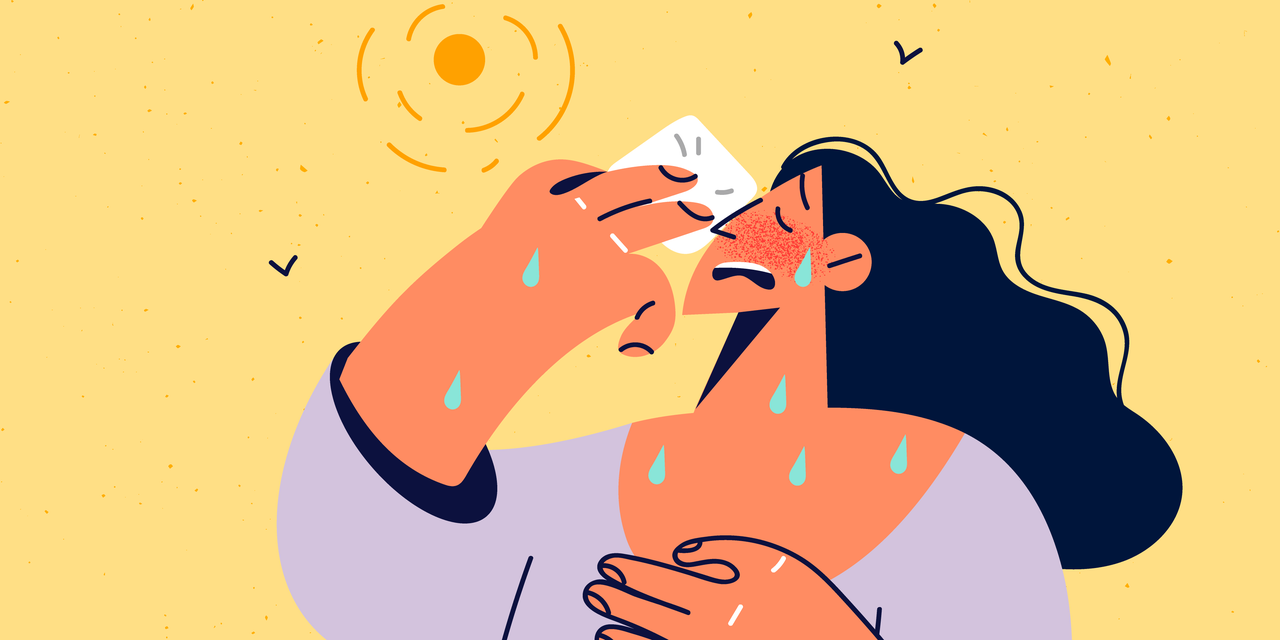Even the simplest everyday tasks—commuting to work, taking your pup for a walk, grabbing a bite outside—can feel like absolute hell in the increasingly hot, humid, and smoldering season known as summer. Maybe you start sweating profusely, craving water like it’s air, or even becoming nauseated or light-headed. No matter your symptoms, we really can’t blame you if 80-plus-degree temperatures are making you feel cranky, drained, and straight-up terrible.
As uncomfortable as sweltering summer weather can be, though, there’s a point when these annoying signs of overheating can enter dangerous territory, Catharina Giudice, MD, an emergency medicine physician and fellow at the Center for Climate, Health, and the Global Environment at Harvard TH Chan School of Public Health, tells SELF. “With heat exhaustion, for instance, you may start to feel dizzy or like your heart is racing,” Dr. Giudice says. In fact, a 2021 study found that temperatures above 100 can not only increase your heart rate but also raise your blood pressure and make it harder to breathe efficiently.
And those aren’t the only risks: You can also experience heat cramps, heat rash, heat stroke, or other forms of heat-related illness if your body temp rises too high and you can’t cool down, according to the Centers for Disease Control and Prevention (CDC).
In an ideal world, you’d be able to ride out a heat wave in an air-conditioned haven, but unfortunately, that’s not a realistic option for most people: Not everyone has the luxury of AC. Plus, a lot of jobs require people to be outdoors, even during the hottest hours of the day (generally between 10 a.m. and 4 p.m.). Not to mention that summer is the season of outdoor festivities and adventures.
READ RELATED: Pedal the low road: cycling coast-to-coast across southern Scotland
“That’s why it’s so important to have an action plan in mind to implement when you first notice that the intense heat is becoming a little too much to bear,” Dr. Guidice says. With that, these are her best tips for immediate relief the next time you need to beat the heat before it overpowers you.
Get in the shade, ASAP.
When running home isn’t an option, taking refuge underneath a big tree, say, or the awning of a building can shield you from direct sunlight and alleviate some of your discomfort (especially if there’s a breeze). Even better, per Dr. Guidice: Duck into a nearby library, grocery store, or local pub—anywhere with AC can help you start to cool down and lower your body temperature.
Standing in the shade isn’t a guaranteed fix—especially if your symptoms are veering into heat exhaustion or heat stroke territory—and won’t actually lower the temperature or humidity outside, as SELF previously reported. But if the heat is making you feel ill and you don’t have AC access, a covered area will be a more comfortable environment to recover than, you know, being directly under the sun, Dr. Guidice says.
Drink liquids—ideally ones that have electrolytes—and plenty of them!
In high temperatures, humans sweat. You and your steamy armpits probably already knew that but on a more scientific level, your body also loses sodium and other electrolytes via the perspiration process—which can lead to dehydration and increase your risk of overheating.






